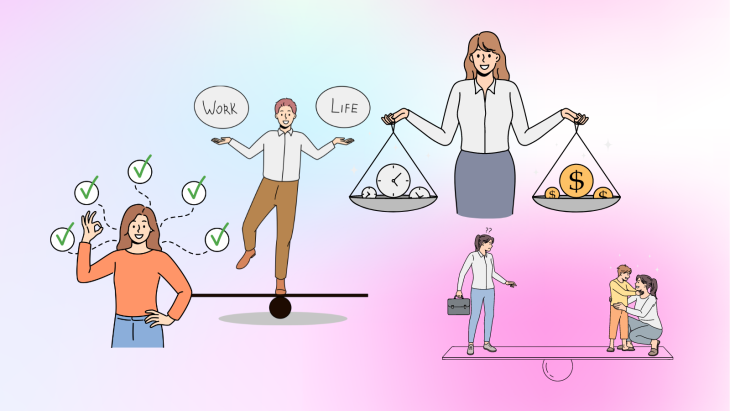Recent Posts
- The Anxious Generation. What is causing Gen Z's mental health crisis?
- Do you have to play games to make relationships work?
- Can a Therapist Find love? The Dating Life of a Therapist.
- Can a Therapist Benefit from Therapy?
- My kid's schedule is fully packed with after-school activities everyday. How much is too much?
Most Popular
Can a busy professional like me have a chance for work-life balance? How do I do it?

Do you think that 24 hours is not enough to get everything done? Has it been at least several months since you last had time for relaxation and stress relief? Do you believe that you do not have enough time to rest? Do you still do work on your days off or on holidays? If you answered yes to these questions, you may be one in millions of American who believe that they do not have work-life balance.
Multiple research on work has strong evidence against overworking, yet the reality in the workplace is long hours, overtime, unhealthy work habits and unsustainable work practices. This makes many professionals ask, “Is work-life balance still possible for me, or will it remain a myth?”
Harvard Business Review researchers asked managers from 2 global firms about how they were able to overcome the pressures of working long hours and live a more balanced life. They found that work-life balance was possible through making sustainable changes.
Factors affecting our perception and behaviors about work
- Productivity is highlighted across cultures and industries.
- The job market is highly competitive. People have to stand out in excellence.
- Increased connectivity made work outside of the office possible.
Work-life balance, an equilibrium and a cycle
People and societies are ever-changing, growing, declining, and adjusting. Looking at work and personal life as two parts of the same whole that are always moving, alive, and able to influence each other helps us to achieve balance, but not perfection. But the benefits of pursuing this balance is rewarding.
- Take a step back and identify what matters.
- What are your life priorities and values? What are your personal and professional goals?
- Where does my time go? Am I giving time to these priorities, values and goals?
- Where does my stress, unbalance or dissatisfaction come from?
- What are their effects on my personal life? Am I losing important things because of how I spend my time?
When you are able to answer these questions, you get a clearer idea of who you are in this season. What is important to you may differ from other people’s. That’s okay. If you are someone with a family, your goals might look different from that of a single person. When these are clear, you can proceed to eliminating activities that waste your time, and you can decide to focus on personal and professional goals.
- Assess and reprioritize what you need in this season.
When you have a clear perspective of where you are and where you want to go, equip yourself with skills to reprioritize and adjust.
- What do I need to eliminate from my schedule?
- How long should I do certain tasks?
- How necessary is the change?
- How do I feel about my current priorities and how would I feel after changing them?
- Learn time management techniques to allocate time for work and personal life. Popular ones include:
- 4Ds. It teaches you what to do, what to delegate, what to delay, and what to delete.
- Pomodoro technique. It allows you to break big tasks into smaller and manageable ones.
- SCRUM. It is a team-based method that teaches you and team members to delegate, organize and solve problems.
This allows you to create a framework that makes each task easier to visualize and manage. You get to protect your time and life satisfaction. It will help you talk about your choices to others like your boss and co-workers.
- Create changes and create time for your priorities.
If you have been work-focused before, but you want to allocate more family time, take time to make plans with your family. You can do a hobby or a project together, or go on a holiday. If there are things you change in your work life, like delegation of some responsibilities, communicating expectations with your co-workers is necessary.
Creating changes and making time also means saying “no” to other alternatives. That is why making your change public, especially on matters that involve people’s expectations, is needed. It helps you reduce the pressure of meeting those expectations that don’t align with your priorities.
When you gain clarity on what matters to you, adjust your priorities based on your current life season and create the changes to meet them, then you create space for yourself to do things that reduce your stress, give you fulfillment and enhance your creativity. Your career wins, and you win too!
If you are considering upgrading your healthcare or mental health career, look among the hundreds of the best job opportunities in the medical field, and find the perfect match!








Comments